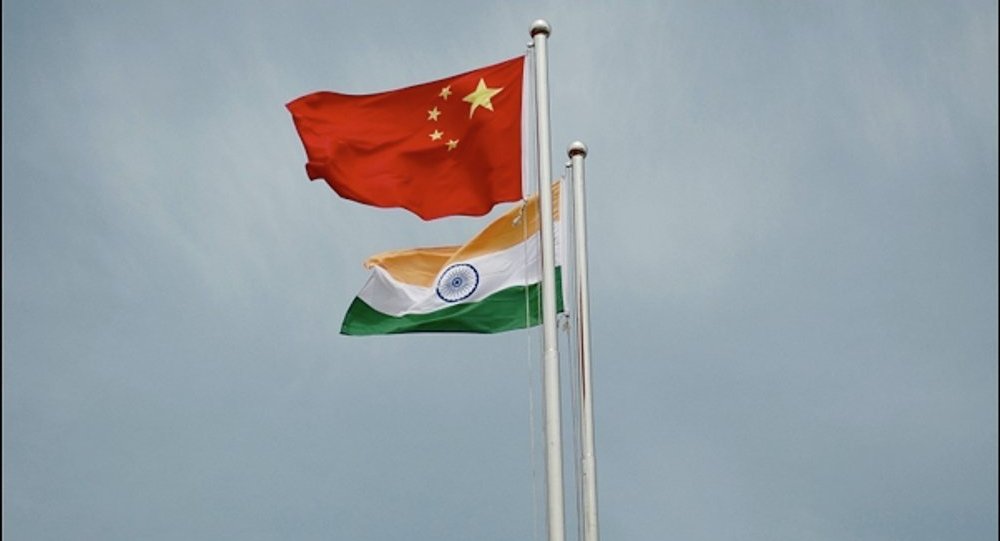Media Report

- The Washington Post reported: "China's defense ministry expressed its 'dissatisfaction and opposition' Thursday over the crash of an Indian unmanned aerial vehicle inside Chinese territory, the latest in a series of border incidents between the regional rivals. Chinese border troops identified the device and were dealing with the matter in a "professional and responsible manner," the official Xinhua News Agency cited the deputy chief of the Chinese military's Western Theater Command, Zhang Shuili, as saying. 'In regards to this matter, we express our strong dissatisfaction and opposition,' Zhang was cited as saying in the Xinhua article posted on the ministry's website. 'We will earnestly carry out our duty and resolutely defend our country's sovereignty and security.' A spokesman for the Chinese Foreign Ministry said the drone crashed in the Sikkim section of China's border with India and that China has lodged a complaint with India over the issue. 'I want to point out that the Sikkim section of China-Indian border has been delineated. And Chinese side along the border line is Chinese territory,' spokesman Geng Shuang said."
- CNBC reports: "An almost two-year long study of the Chinese financial system by the International Monetary Fund found three major tensions that could derail the world's second-largest economy. Those tensions emerged as China moves away from its role as the world's factory to a more modern, consumer-driven economy, the IMF said. The financial sector is critical in facilitating that transition, but in the process it evolved into a more complicated and debt-laden system. 'The system's increasing complexity has sown financial stability risks,' the fund said in the 2017 China Financial Sector Stability Assessment report released on Thursday morning Asia hours. The report was a culmination of the fund's several visits to China between October 2015 and September 2017. The assessment is intended to identify key sources of systemic risk in the financial sector so that policies can be implemented to enhance resilience to shocks and problems that could spread across the globe. The first tension in China's financial system, according to the IMF, is the rapid build-up in risky credit that was partly due to the strong political pressures banks face to keep non-viable companies open, rather than letting them fail."
- Brookings comments: "Western media coverage of the recently concluded World Internet Conference in Wuzhen largely focused on the event's contradictions: Participants enjoyed unfiltered access to the internet while the rest of the 1.4 billion people in China stayed trapped behind the Great Firewall; A top Chinese leader spoke about China's commitment to openness at the same time as China is tightening its squeeze on U.S. firms seeking to enter and compete in China's market; and U.S. CEOs spoke favorably of China's efforts to advance frontier technologies as Chinese security services are perfecting ways to harness those very technologies to suppress Chinese citizens' universal rights. All of these stories are true and worthy of public scrutiny; however, framing what happened in Wuzhen only through these well-worn narratives is like describing Mt. Everest as tall—incontrovertible, but not very illuminating. Further, these simple narratives risk overshadowing the larger story: The Chinese government is aggressively moving to attract international support for its vision for internet rule-making and management, while the United States government appears largely missing in action."
Calendar
- 2017-12-06 No. 3 Person of the Year 2017: Xi Jinping
- 2017-12-05 U.S. trade gap soars as imports from China hit record high
- 2017-12-04 Apple CEO backs China’s vision of an ‘open’ Internet as censorship reaches new heights
- 2017-12-03 China's Xi says country will not close door to global internet
- 2017-12-01 China sends its top actors and directors back to socialism school
- 2017-11-30 Obama Told Xi He Wants to Help Preserve Ties, State Media Says
- 2017-11-29 China has 'grave concerns' about North Korea's latest missile test
- 2017-11-28 How the U.S. and China Differ on North Korea
- 2017-11-27 What you need to know about Beijing’s crackdown on its “low-end population”
- 2017-11-26 China Industrial Profits Remain Robust With Inflation Intact
News
- The Washington Post China criticizes India over drone crash inside border
- CNBC China's financial system has three important 'tensions,' the IMF says
- Fortune Why China's GDP Growth Rate Tells Us Nothing About Its Economy
- CNN U.S. hits Vietnam with massive duties over Chinese steel
- TechCrunch As Cook and Pichai leave China, Valley confronts rising internet tyranny in world's second largest market
- CNBC JPMorgan explains what's driving China's growth
- Financial Times Westminster School to teach Chinese curriculum in China
- The New York Times China Scolds Australia Over Its Fears of Foreign Influence
- Bloomberg Lego Wins Its First Copyright Court Case in China Against Bela
- CNBC Chinese private fund assets hit a staggering $1.63 trillion
- Bloomberg U.S. Chip Engineers Charged in Theft Scheme for Chinese Firm
- CNBC Japan to help finance China's Belt and Road projects
- Financial Times China's food stores attract a new wave of snackers and e-shoppers
Commentary
- Brookings The U.S. can no longer ignore China as a global internet player
- National Interest Why America Should Disinvite China to RIMPAC 2018
- The Diplomat Modern China and the 2 Great Mountains
- ChinaFile Could Truman Have Worked With Mao?
- Fortune Why China's GDP Growth Rate Tells Us Nothing About Its Economy
- ChinaFile Apple in China: WTF?
- Foreign Policy Blogs North Korea, Trump, and Underlying Dynamics
